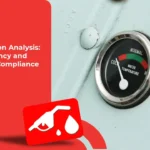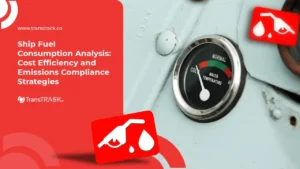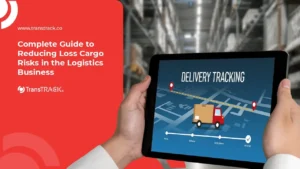Productivity Analysis: Improving Fleet Performance with GPS Tracking Technology
Posted on September 3, 2024 by Nur Wachda Mihmidati

Productivity analysis is crucial in every industrial sector. The adoption of GPS tracking solutions has been adopted by a majority of fleets across industries, and its impact has been felt in improving performance and operational efficiency. Despite facing high competitive pressures, the use of this technology helps fleets better navigate challenges and maintain customer satisfaction. In both the public and private sectors, these solutions are proving to be highly beneficial in reducing costs and achieving business targets.
In the private sector, 77% of fleets reported that GPS tracking solutions were highly beneficial. In fact, 47% of them achieved a positive ROI in less than one year. Productivity improvements were also significant, with 58% of fleets reporting improved performance after using GPS tracking. In addition, customer service improved by 47% and route optimization reached 45%, directly contributing to time and resource savings.
In terms of costs, this technology has a positive impact on reducing operational expenses. On average, fuel costs were reduced by 10%, accident costs decreased by 17%, and labor costs were reduced by 11%. All this confirms that GPS tracking not only increases productivity, but also significantly reduces operating costs, helping fleets become more competitive in an increasingly challenging market.

Asset Tracking Solution to Optimize Asset Usage and Productivity
The use of asset tracking solutions has steadily increased in the last three years, with a growth of 9%. Like GPS fleet tracking, asset tracking helps organizations maximize their available resources while reducing operational costs. Some of the key objectives achieved through the use of asset tracking include:
- Better Equipment and Trailer Utilization: Improved equipment and trailer utilization helps fleets avoid investing in additional assets, resulting in more efficient resource management.
- Improved Safety: The solution also increases security, which in turn reduces asset replacement costs and lowers insurance premiums.
- Increased Productivity: Productivity of workers, drivers, office staff, and management improved, allowing higher priority jobs to be completed in a single day without the need for additional manpower.
In terms of return on investment (ROI), the majority of fleets reported achieving positive ROI, with 46% achieving ROI in less than one year, and 19% in more than one year.
Here are the key achievements from using the asset tracking solution:
- Improved equipment/trailer utilization by 58%
- Improved equipment/trailer safety by 54%
- Driver/worker efficiency and productivity by 50%
- Office staff/management efficiency and productivity by 44%
- Decreased insurance costs by 34%
Productivity Analysis: Reducing Fleet Costs through Fleet Management Technology
The use of fleet management technology is proven to significantly reduce operational costs. Savings in fuel, labor, and accident costs are effective measures for fleets to cope with the impact of inflation.
As shown by the data above, the implementation of fleet management software can reduce fuel costs by 9% on average across various industries, including the transportation, construction, field service, and utility sectors. In fact, the government sector saw a reduction in fuel costs by 7%</a>.
In addition, significant savings were also seen in the reduction of accident costs, with an average of 15% for all industries, where the transportation sector had the highest savings of 16%. The use of technology also has a positive impact on reducing labor costs, with an average reduction of 10% across all industries, and 13% in the transportation sector.
With fleet management technology, fleets can identify ways to reduce fuel usage, improve safety, and ultimately improve productivity. This implementation not only keeps expenses in check, but also enables more efficient operational optimization.

With proper productivity analysis, companies can identify areas for improvement and maximize operational efficiency. TransTRACK’s Fleet Management System (FMS) is a comprehensive solution designed to optimize vehicle fleet management and improve operational efficiency. Here are some of the key features and benefits of TransTRACK’s FMS:
1. Real-Time Monitoring
- GPS Tracking: Allows real-time monitoring of vehicle location, assisting companies in optimizing routes and reducing travel time.
- Vehicle Performance Data: Collect information on speed, fuel usage, and driver behavior to improve efficiency.
2. Maintenance Management
- Automated Maintenance Schedule: Make it easy to schedule vehicle maintenance based on mileage or time to prevent downtime.
- Maintenance History: Automatically saves vehicle maintenance data for further analysis and regulatory compliance.
3. Data Analysis and Reports
- Performance Report: Provides detailed reports on fleet performance, aiding better decision-making.
- Cost Analysis: Identifies operational costs and provides insight into areas that require improvement.
4. Security and Protection
- Anti-Theft Feature: An advanced security system that provides alerts if the vehicle moves without authorization.
- Driver Monitoring: Monitor driver behavior to improve safety and reduce accident risk.
5. Integration and Mobility
- Access via Mobile App: Allows users to access fleet information from anywhere, facilitating more flexible management.
- Integration with Other Systems: Can be integrated with other management systems, such as Transport Management System (TMS) and Transport Administration System (TAS).
6. Improved Operational Efficiency
- Cost Savings: Reduced fuel and maintenance costs through vehicle utilization optimization.
- Improved Productivity: Improve delivery efficiency and fleet utilization, ultimately contributing to improved customer service.
With TransTRACK’s Fleet Management System, your company not only gets a solution for managing fleets, but also a powerful tool for improving overall productivity and efficiency. If you’re ready to take your fleet management to the next level, don’t hesitate to contact us for more information!
Topic :
Recommended Articles

 Bahasa Indonesia
Bahasa Indonesia








